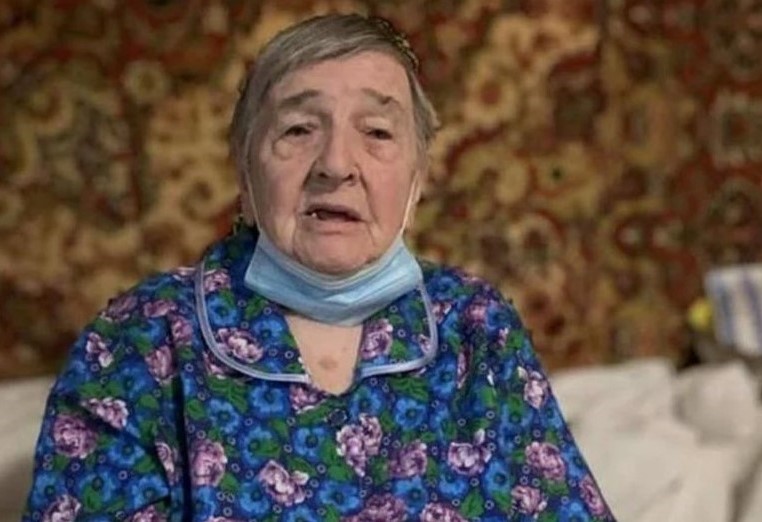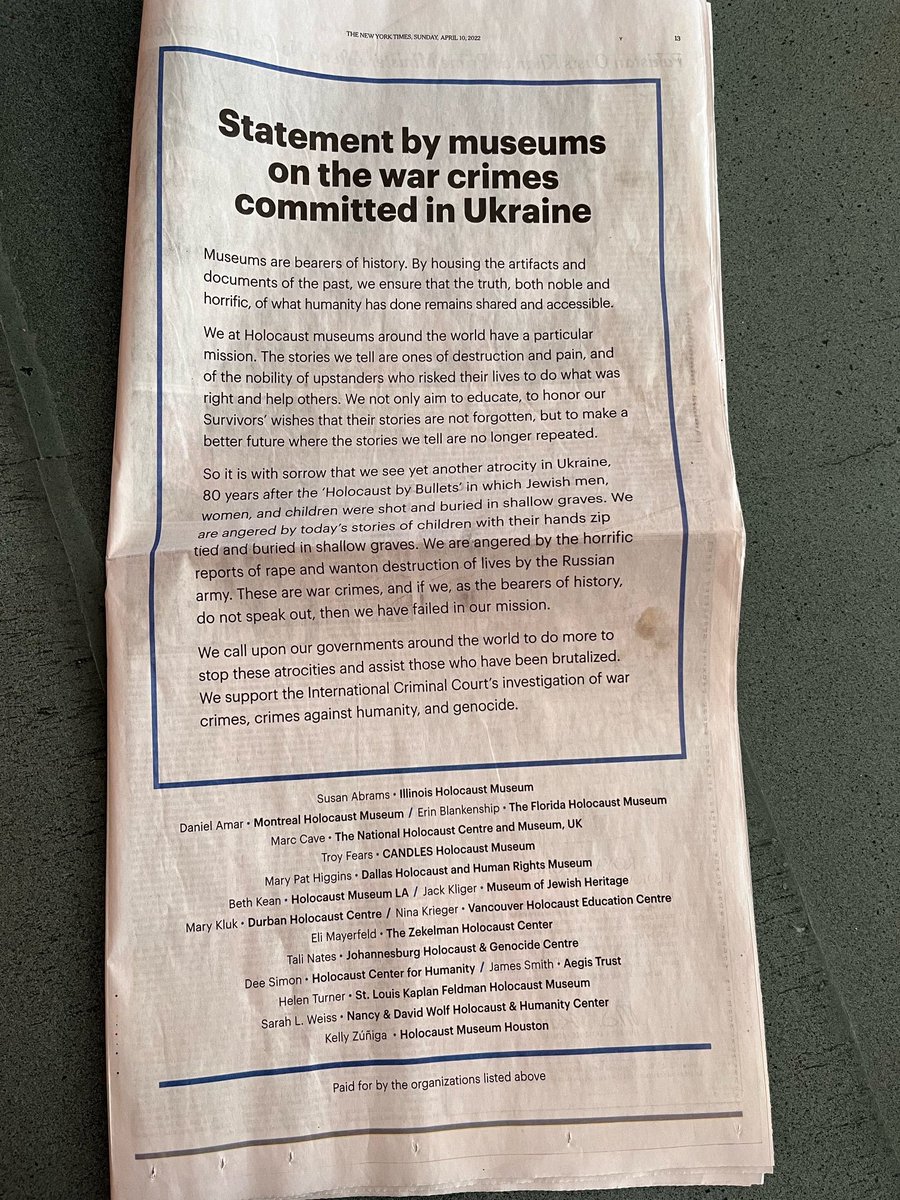Ukrainian Holocaust survivor dies in a Mariupol basement, seeking refuge from Russian bombs

Vanda Obiedkova was ten years old in 1941, when the Nazis invaded Mariupol and came for the Jews, including her mother. Vanda escaped, initially by hiding in a basement. She died 81 years later, on 4 April 2022, in a bitterly cold Mariupol basement, where she and her family were forced to seek shelter from Russian bombs.
Mariupol has been under siege since soon after Russia began its full invasion of Ukraine on 24 February. The Russians have repeatedly refused to honour humanitarian corridors for coaches to evacuate civilians and have effectively destroyed the city’s infrastructure, leaving people without electricity and heating, with no running water and very little food or medication. Chabad.org has learned from Vanda Semyonovna’s daughter, Larissa, that her mother spent the last two weeks of her life, pleading for water and asking why all of this horror was happening. Her mother did not deserve such a death, she says. “There was no water, no electricity, no heat—and it was unbearably cold,” It is clear that Russia wants this humanitarian disaster as there were two snipers in position near the closest source of desperately needed water.
Russia has made even proper funerals impossible, and Larissa and her husband were forced to brave the dangerous shelling in order to bury Vanda Semenivna in a public park. They have since managed to flee the city.
Rabbi Mendel Cohen told the newspaper that Vanda Obiedkova and her family had been active members of the local Jewish community. “Vanda Semyonovna lived through unimaginable horrors. She was a kind, joyous woman, a special person who will forever remain in our hearts.”
Vanda Obiedkova is the second Holocaust survivor known to have died as the result of a war that Russian leader Vladimir Putin claimed on 24 February was aimed at “the demilitarization and denazification of Ukraine”.
Boris Romantschenko (or Romanchenko) was killed on 18 March, when Russians bombed his apartment block in Kharkiv. He was 96 year old and had survived four Nazi concentration camps (Buchenwald; Peenemünde; Dora and BergenBelsen). He had difficulty walking and had refused to leave Kharkiv, even though the Northern Saltivka district where he lived has been particularly savagely bombed. The missile hit his apartment, which was totally gutted.
On 3 March, three elderly Ukrainians, all survivors of the Nazi invasion of Ukraine and of the Holocaust, were forced to once again take cover, this time from the Russians. From a bomb shelter, with the Ukrainian and Israeli flags by them, they delivered a powerful address to Russian leader Vladimir Putin, telling him to take his army and get the hell out of Ukraine. “We want peace!”
Moscow’s use of unfounded claims about ‘genocide of Russian speakers’ and of claims that its bombing and killing of civilians throughout Ukraine is about ‘denazification’ has been condemned both by Ukrainian Jewish leaders and by Holocaust organizations.
On 28 February, members of the international remembrance committees of Auschwitz, Buchenwald-Dora, Dachau and other Nazi concentration and death camps, issued an appeal, demanding an end to the war. They condemned Moscow’s cynical abuse of Shoah and the memory of its victims in its propaganda.
“As bearers of the memory of the victims of Nazism, the signatories of this appeal denounce the use of the words denazification and genocide to justify the attack on Ukraine. We are legitimate in pointing out the weight of tragedy that they cover. We cannot accept that these words should be so abused.”
On 14 March, the Odesa Regional Association of Former Jewish Ghetto and Concentration Camp Prisoners issued a statement condemning both Russia’s invasion of Ukraine and the false justification used for the invasion by Russia and its leader, Vladimir Putin. The statement, made public by the Association’s Head, Roman Schwarzman, notes that, since 2014, the official Russian Federation propaganda has been pushing, both in Russia and to the international community, a lie claiming that those in power in Ukraine are Nazi collaborators, and not a democratically elected government. This lie is now being used to justify the carnage and destruction inflicted by the Russian Armed Forces on the territory of sovereign Ukraine.
“We members of the Odesa Regional Association of Former Jewish Ghetto and Concentration Camp Prisoners survived through a miracle the fire of the Holocaust and, unlike Vladimir Putin, experienced ourselves the horrors of war. We know what real Nazism is and not that generated by his diseased hallucinations under the influence of his own propagandists.”
On 11 April, 17 Holocaust museums from four countries took out a full-page statement in the New York Times, calling on the world to do more to stop Russian atrocities and war crimes in Ukraine.
“It is with sorrow that we see yet another atrocity in Ukraine, 80 years after the ‘Holocaust by Bullets’ in which Jewish men, women, and children were shot and buried in shallow graves. We are angered by today’s stories of children with their hands zip tied and buried in shallow graves. We are angered by the horrific reports of rape and wanton destruction of lives by the Russian army. These are war crimes, and if we, as the bearers of history, do not speak out, then we have failed in our mission.
We call upon our governments around the world to do more to stop these atrocities and assist those who have been brutalized. We support the International Criminal Court’s investigation of war crimes, crimes against humanity, and genocide.”
See also:
Chief Rabbi of Odesa: “Ukraine is the safest country in the world for Jews”
Chief Rabbi of Ukraine demolishes Putin’s excuse for Russia’s invasion






